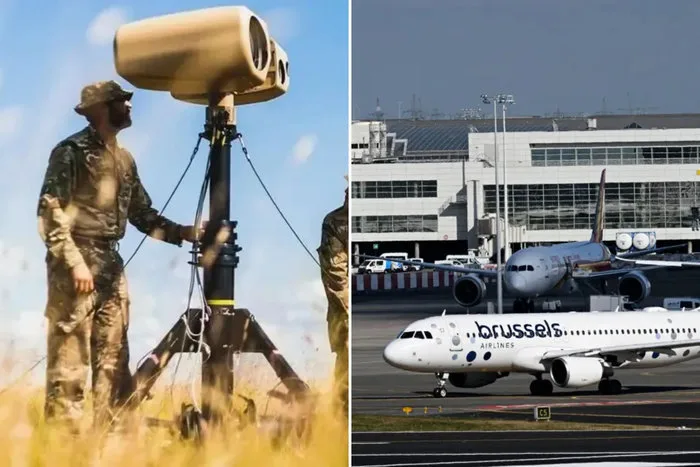By Victoria Friedman
The UK has agreed to offer military support to Belgium after the European nation saw several days of drone incursions over its airspace, the British Chief of Defence Staff said on Nov. 9.
Air Chief Marshal Sir Richard Knighton told the BBC that he had spoken to his Belgian counterpart, who had asked whether the UK would support them.
“Defense Secretary John Healey and I agreed at the end of last week that we would deploy our people, our equipment, to Belgium to help them,” Knighton said.
The British Ministry of Defence wrote on X that Healey agreed to deploy “a specialist counter-drone unit.”
“Working with NATO allies, we stand ready to counter hybrid threats [and] keep skies safe,” the department stated.
Belgian Defence Minister Theo Francken wrote on X on Nov. 9 that he was “grateful to our British friends for their swift support and solidarity.”
“The deployment of a UK anti-drone team in Belgium strengthens our collective security and showcases our unity in countering hybrid threats,” he said.
The UK is following France and Germany in offering support to Belgium.
On Nov. 7, Francken wrote on X that France’s deployment of an anti-drone team “strengthens our collective security and showcases European unity in countering hybrid threats.”
The previous day, the German delegation at NATO said it had deployed Air Force advance units to Belgium to coordinate unmanned aerial vehicle (UAV) detection and defense capabilities with its Belgian counterparts.
Several Drone Sightings
On two separate occasions last week, Belgium’s Liège Bierset Airport and Brussels Airport had to close their skies and ground flights following sightings of UAVs.
UAVs were also spotted over two Belgian military bases, Kleine-Brogel and Florennes, on Nov. 4. These came a day after similar sightings over Kleine-Brogel, which houses U.S. nuclear weapons.
Francken said after the first sighting at Kleine-Brogel that the drones could be part of a spying operation but declined to apportion blame to a group or state actor.
The incursions over Belgium follow similar sightings in other European countries in recent months, including Sweden, Denmark, and Poland.
Some European officials have blamed the incursions on Russia, although Moscow has denied any connection to the incidents.
Knighton would not apportion blame for the UAV sightings over Belgium when it was suggested that they could be of Russian origin.
“It is important to be clear, though, that we don’t know and the Belgians don’t yet know the source of those drones,” he told the BBC.
Growing Threats
Knighton cited the UK’s Strategic Defence Review, an assessment of the UK’s current defense and security capabilities, which he said “sets out quite clearly that we face a future or present that is more volatile, more uncertain, and there are growing threats to the alliance and to the UK.”
“That’s why we need to modernize. That’s why we need to ensure that we are—to use the term—‘war-fighting ready,’ and that’s why the government has committed to invest unprecedented amounts in defense spending over the next few years, more than I’ve ever known in my career,” he said.
Earlier this year, almost all NATO members agreed to increase defense spending to 5 percent of gross domestic product by 2035.
NATO allies agreeing to boost defense spending and European partners working in close collaboration over anti-drone activities come in the context of the ongoing Russia–Ukraine war, which is entering its fourth year.
Europe’s Defense Projects
Last month, the European Commission stated that Europe must prepare to combat new forms of warfare, including sabotage of undersea cables, cyber attacks, and drone incursions.
On Oct. 16, European Commission President Ursula von der Leyen unveiled proposals for four flagship defense projects, including a drone wall and fortification of Europe’s eastern border, as part of measures to boost defense by 2030.
Defense experts have said that the European Union’s rapid move to counter threats could redefine how Europe defends its airspace and strengthen its role within NATO’s framework.
Bartosz Grodecki and Maciej Romanow, from the security team at Polish think tank Sobieski Institute, recently told The Epoch Times that Brussels’ plans show “that Europe is not passively relying on the United States, but actively investing in its own defense.”
“This increases Europe’s credibility in Washington and demonstrates a genuine commitment to burden sharing,” they said.
“This shift changes Europe’s position from being a security receiver to becoming a security provider.
“For the United States, this means a more balanced partnership in which European allies take on part of the financial and technological burden.”





